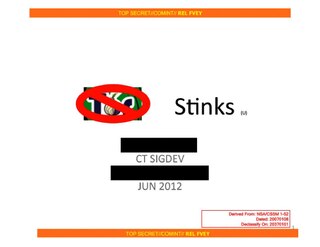Related Research Articles

The Apache HTTP Server is a free and open-source cross-platform web server software, released under the terms of Apache License 2.0. It is developed and maintained by a community of developers under the auspices of the Apache Software Foundation.

Lynx is a customizable text-based web browser for use on cursor-addressable character cell terminals. As of 2023, it is the oldest web browser still being maintained, having started in 1992.

In computer networking, a proxy server is a server application that acts as an intermediary between a client requesting a resource and the server providing that resource. It improves privacy, security, and performance in the process.
Privoxy is a free non-caching web proxy with filtering capabilities for enhancing privacy, manipulating cookies and modifying web page data and HTTP headers before the page is rendered by the browser. Privoxy is a "privacy enhancing proxy", filtering web pages and removing advertisements. Privoxy can be customized by users, for both stand-alone systems and multi-user networks. Privoxy can be chained to other proxies and is frequently used in combination with Squid among others and can be used to bypass Internet censorship.

Squid is a caching and forwarding HTTP web proxy. It has a wide variety of uses, including speeding up a web server by caching repeated requests, caching World Wide Web (WWW), Domain Name System (DNS), and other computer network lookups for a group of people sharing network resources, and aiding security by filtering traffic. Although used for mainly HTTP and File Transfer Protocol (FTP), Squid includes limited support for several other protocols including Internet Gopher, Secure Sockets Layer (SSL), Transport Layer Security (TLS), and Hypertext Transfer Protocol Secure (HTTPS). Squid does not support the SOCKS protocol, unlike Privoxy, with which Squid can be used in order to provide SOCKS support.
A Web cache is a system for optimizing the World Wide Web. It is implemented both client-side and server-side. The caching of multimedia and other files can result in less overall delay when browsing the Web.

HTTP pipelining is a feature of HTTP/1.1, which allows multiple HTTP requests to be sent over a single TCP connection without waiting for the corresponding responses. HTTP/1.1 requires servers to respond to pipelined requests correctly, with non-pipelined but valid responses even if server does not support HTTP pipelining. Despite this requirement, many legacy HTTP/1.1 servers do not support pipelining correctly, forcing most HTTP clients to not use HTTP pipelining.

The usage share of web browsers is the portion, often expressed as a percentage, of visitors to a group of web sites that use a particular web browser.

Microsoft's Professional Developers Conference (PDC) was a series of conferences for software developers; the conference was held infrequently to coincide with beta releases of the Windows operating system, and showcased topics of interest to those developing hardware and software for the new version of Windows.

Julian Bleecker is an artist and technologist with a history developing innovative mobile research projects.
A proxy auto-config (PAC) file defines how web browsers and other user agents can automatically choose the appropriate proxy server for fetching a given URL.

Larry Johnson is an American futurist, author, and educator. Currently, Johnson serves as the Founder and CEO of EdFutures.org, an international think tank, and as a Senior Fellow of the Center for Digital Education. From 2001-2016, he served as Chief Executive Officer of the New Media Consortium an international consortium of hundreds of universities, colleges, museums, research centers, and technology companies.
Resin is a web server and Java application server from Caucho Technology. In addition to Resin (GPL), Resin Pro is available for enterprise and production environments with a license. Resin supports the Java EE standard as well as a mod_php/PHP like engine called Quercus.
Web storage, sometimes known as DOM storage, is a standard JavaScript API provided by web browsers. It enables websites to store persistent data on users' devices similar to cookies, but with much larger capacity and no information sent in HTTP headers. There are two main web storage types: local storage and session storage, behaving similarly to persistent cookies and session cookies respectively. Web Storage is standardized by the World Wide Web Consortium (W3C) and WHATWG, and is supported by all major browsers.
The Apache Traffic Server (ATS) is a modular, high-performance reverse proxy and forward proxy server, generally comparable to Nginx and Squid. It was created by Inktomi, and distributed as a commercial product called the Inktomi Traffic Server, before Inktomi was acquired by Yahoo!.
NetCache is a former web cache software product which was owned and developed by NetApp between 1997 and 2006, and a hardware product family incorporating the NetCache software.

Evercookie is a JavaScript application programming interface (API) that identifies and reproduces intentionally deleted cookies on the clients' browser storage. It was created by Samy Kamkar in 2010 to demonstrate the possible infiltration from the websites that use respawning. Websites that have adopted this mechanism can identify users even if they attempt to delete the previously stored cookies.

The University of Colorado Denver is a public research university located in downtown Denver, Colorado. It is part of the University of Colorado system. Established in 1912 as an extension of the University of Colorado Boulder, CU Denver attained university status and became an independent institution in 1973. CU Denver is the largest research university in Colorado, and is classified among R1: Doctoral Universities - Very High Research Activity. The university's graduate programs award more master's degrees than any other institution in the state, serving roughly 5,000 students annually.
In contrast to IP-based, host-oriented, Internet architecture, Content-Centric Networking (CCN) emphasizes content by making it directly addressable and routable. Endpoints communicate based on named data instead of IP addresses. CCN is characterized by the basic exchange of content request messages and content return messages. It is considered an information-centric networking (ICN) architecture.

The following outline is provided as an overview of and a topical guide to Wikipedia:
References
- ↑ "Caching on JANET". JISC. 1996-09-01. Retrieved 2010-12-04.
- ↑ "Harvest Web Indexing". 2002-02-05. Archived from the original on 2002-02-05. Retrieved 2010-12-04.
- ↑ Duane Wessels (2004). Squid: the definitive guide. O'Reilly Media. p. 3. ISBN 0-596-00162-2.
- ↑ "Squid Internet Object Cache - Advanced caching proxy server for Unix —". Serverwatch.com. 1998-07-30. Retrieved 2010-12-04.